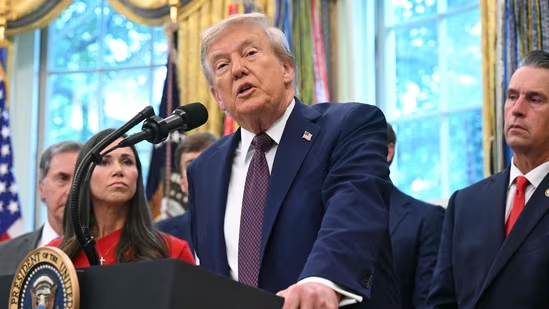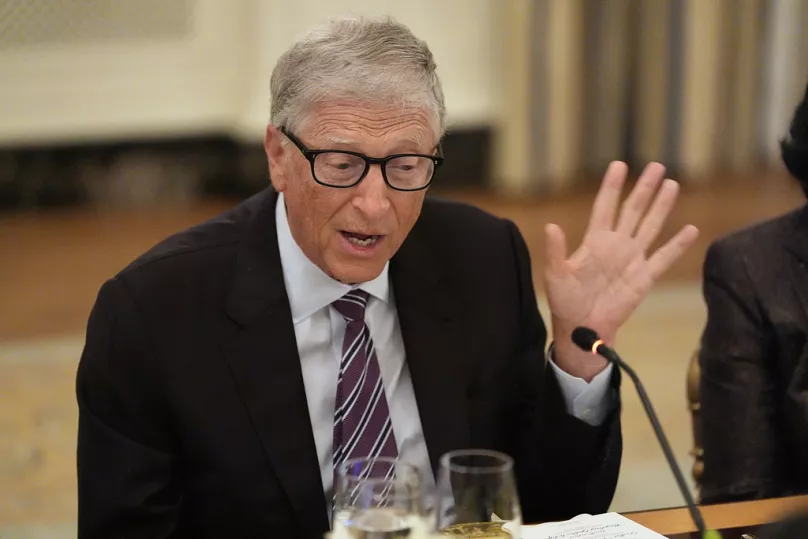Now Reading: Trump Condemns EU’s $3.5 Billion Fine on Google as ‘Unfair’ and Threatens Retaliatory Measures
-
01
Trump Condemns EU’s $3.5 Billion Fine on Google as ‘Unfair’ and Threatens Retaliatory Measures
Trump Condemns EU’s $3.5 Billion Fine on Google as ‘Unfair’ and Threatens Retaliatory Measures

Former U.S. President Donald Trump has sharply criticized the European Union’s recent decision to impose a $3.5 billion antitrust fine on Google, labeling it as “very unfair” and “discriminatory.” The fine stems from allegations that Google favored its own advertising services over competitors, violating EU competition laws. In response, Trump has threatened to initiate a Section 301 trade investigation, which could lead to retaliatory tariffs on European goods.
Background on the EU’s Antitrust Action
The European Commission’s fine is the latest in a series of penalties against Google for antitrust violations. Regulators found that Google engaged in “self-preferencing” practices, prioritizing its own advertising technology services over those of rivals, thereby stifling competition in the digital advertising market. This move has drawn criticism from various stakeholders, including U.S. lawmakers and tech industry leaders, who argue that such actions disproportionately target American companies.
Trump’s Response and Threat of Retaliation
In a post on his social media platform, Truth Social, Trump expressed his disapproval of the EU’s decision, stating that it unfairly penalizes a leading American company. He emphasized that such actions would not be tolerated and warned of potential economic repercussions. The threat of a Section 301 investigation indicates a willingness to escalate the trade dispute, which could have broader implications for U.S.-EU economic relations.
Implications for Global Trade and Technology Policy
The EU’s fine and Trump’s response highlight the ongoing tensions between global regulatory frameworks and the interests of multinational corporations. As digital markets become increasingly integral to the global economy, the balance between enforcing competition laws and fostering innovation remains a contentious issue. The outcome of this dispute could set significant precedents for future regulatory actions and international trade policies.
Conclusion
The EU’s $3.5 billion fine on Google has sparked a strong reaction from former President Trump, who views the penalty as an unjustified attack on American business interests. As both parties consider their next steps, the situation underscores the complex interplay between national interests, international trade laws, and the regulation of global tech giants. The resolution of this issue will likely influence future approaches to antitrust enforcement and international economic relations

























